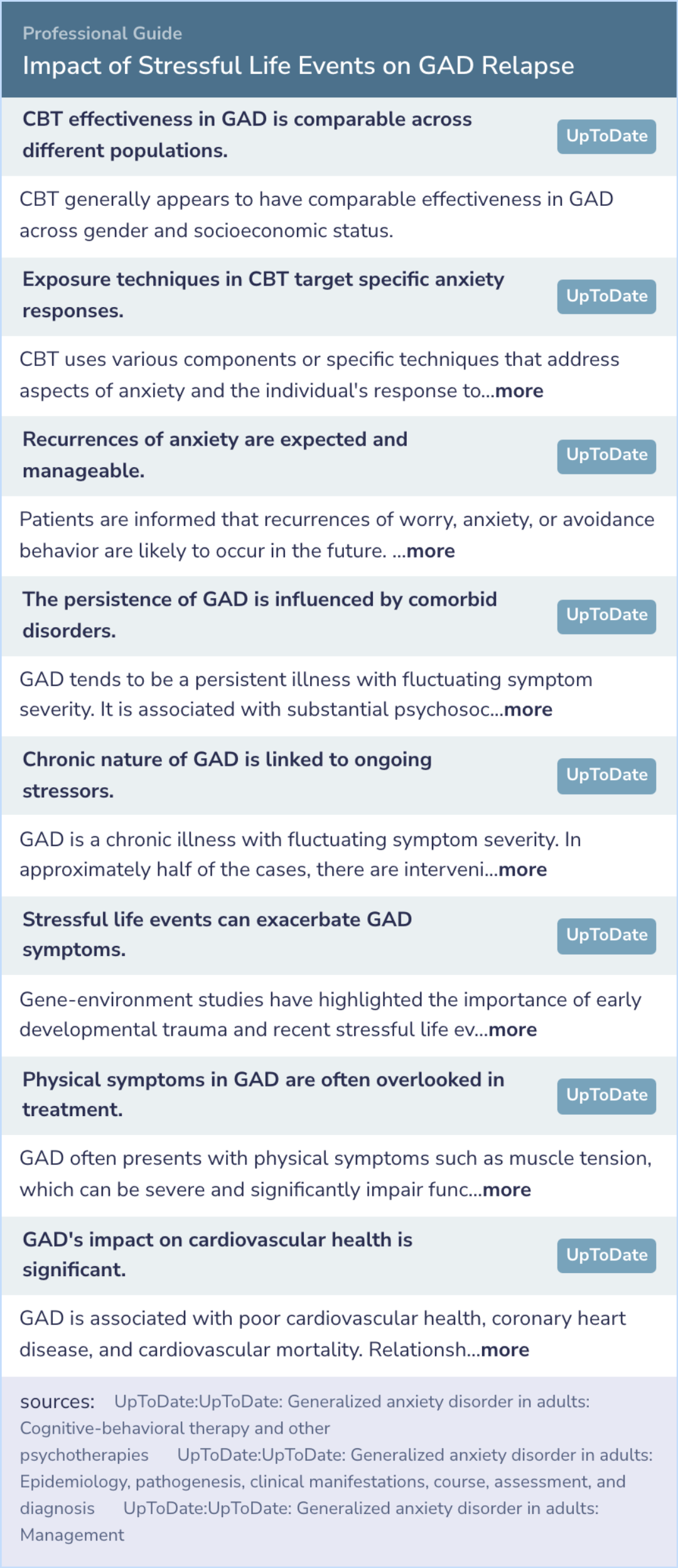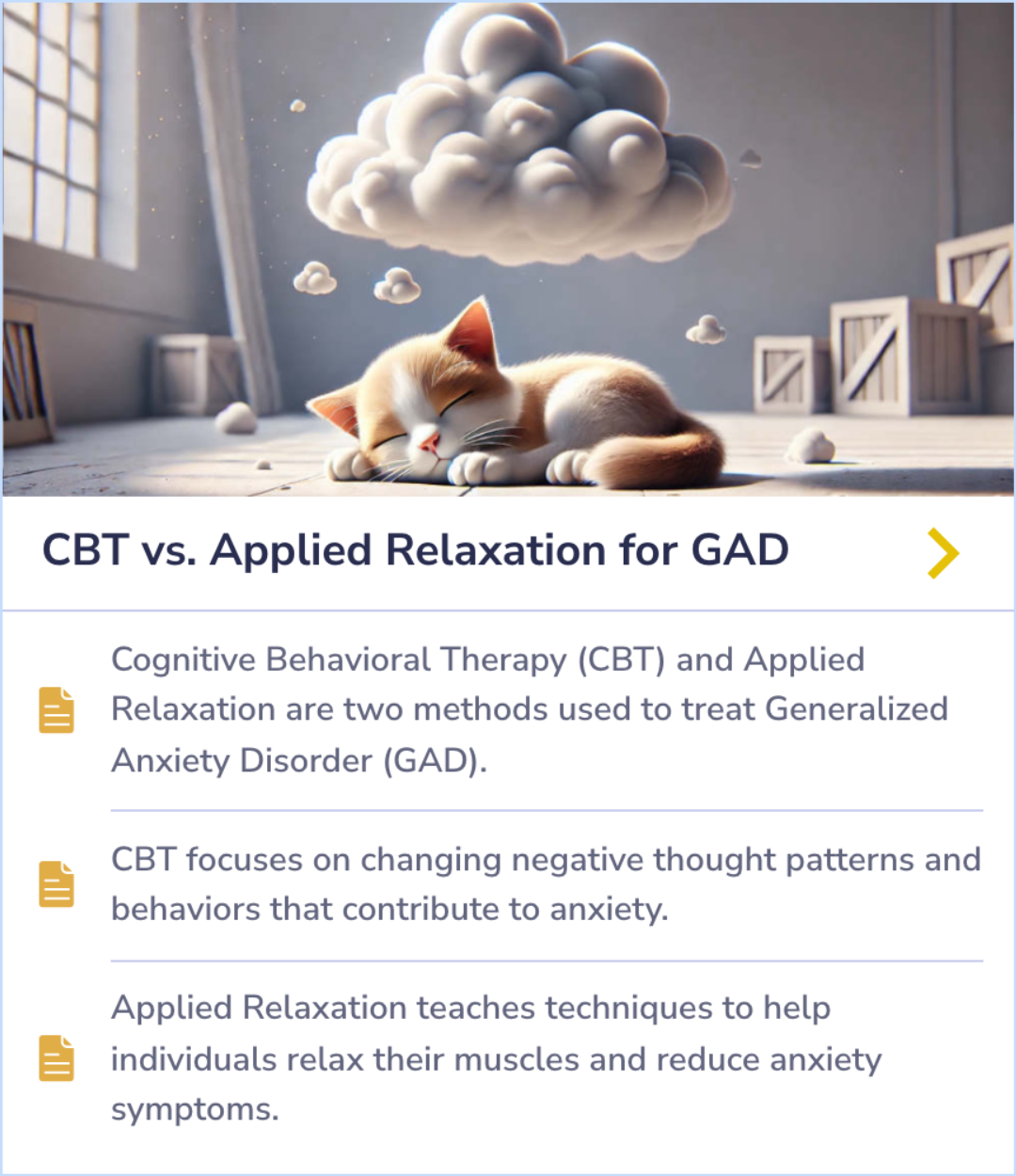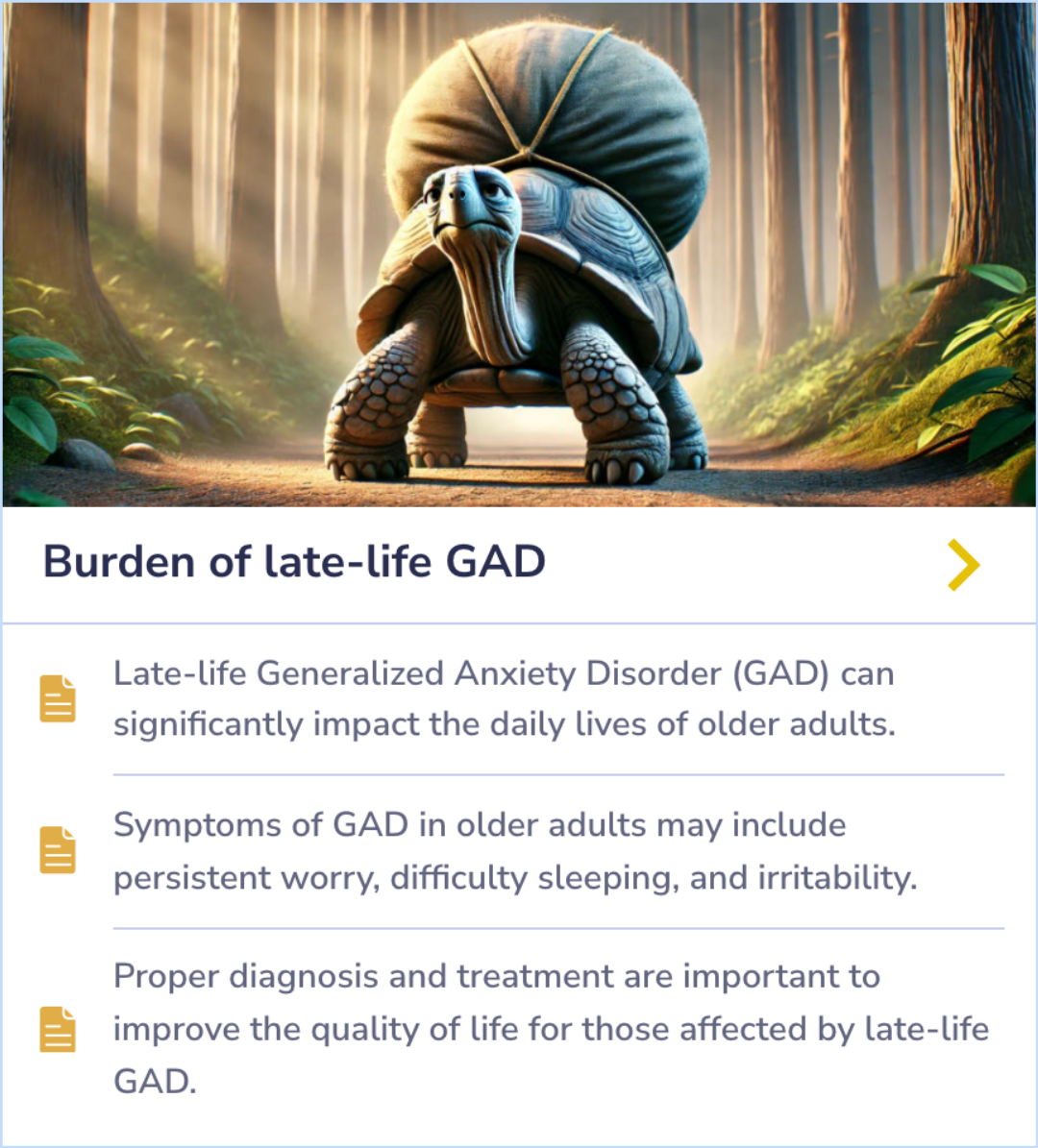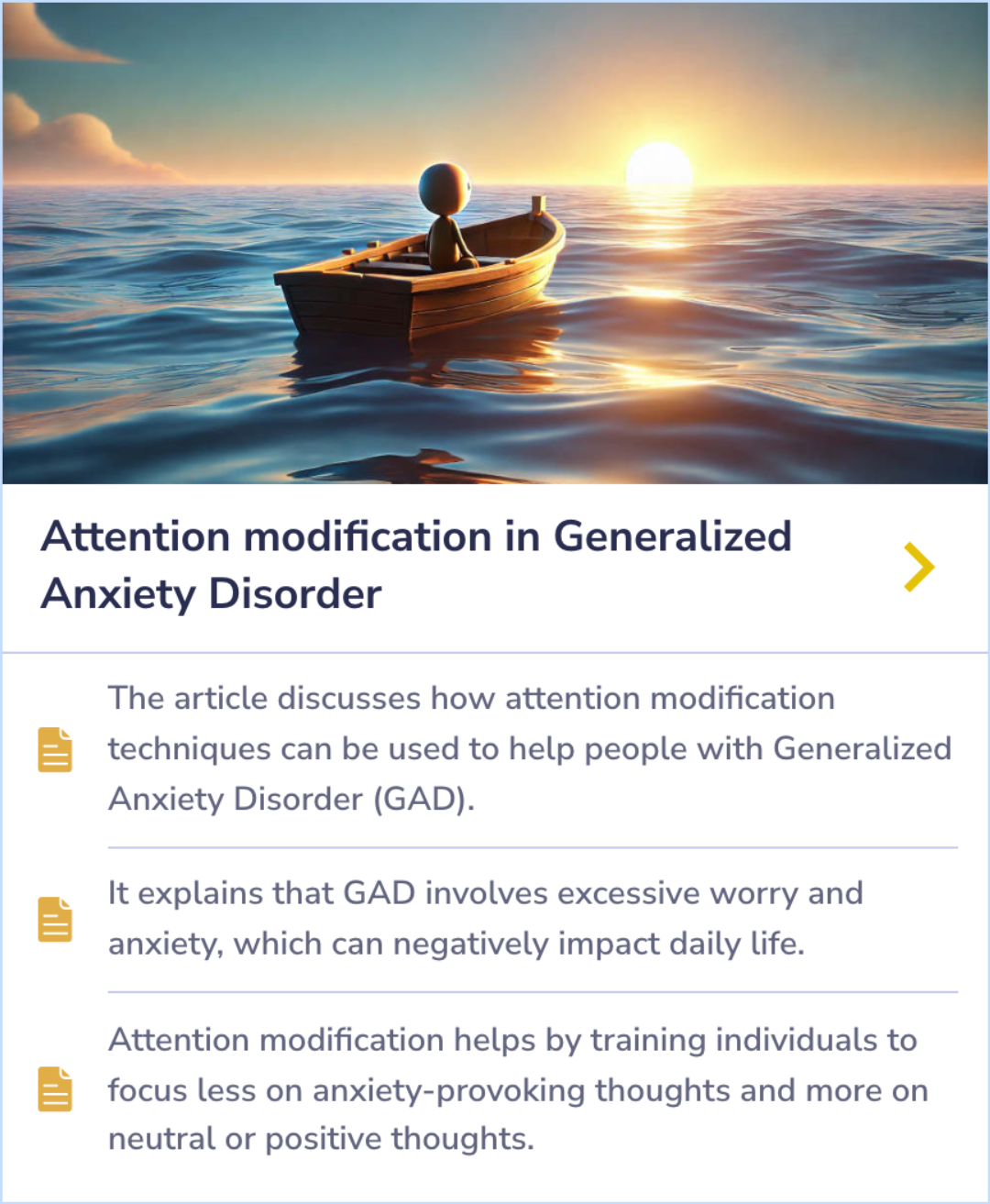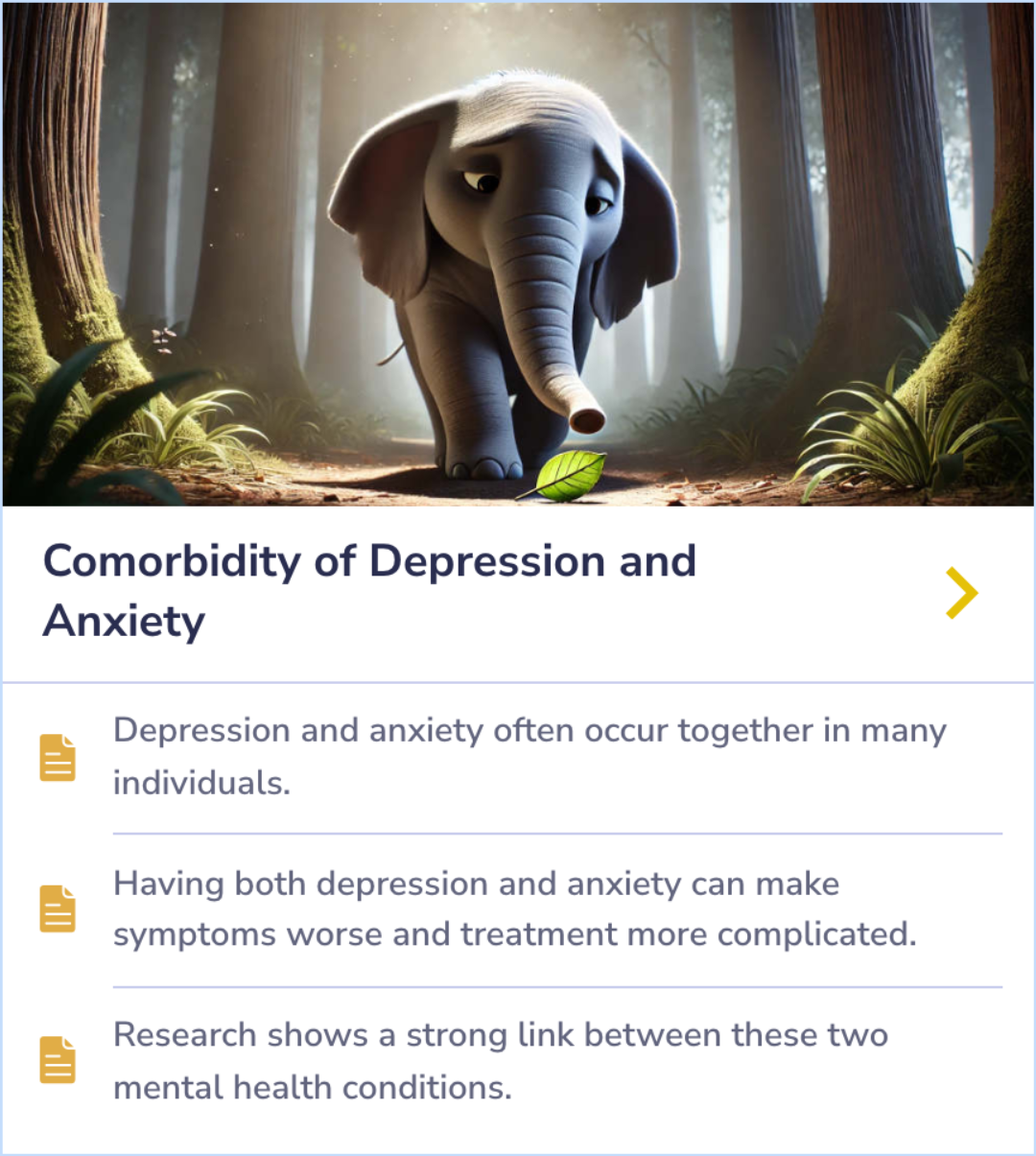Generalized Anxiety Disorder Papers
Visual Abstract
The impact of stressful life events on relapse of generalized anxiety disorder
Impact of Stressful Life Events on GAD Relapse
November 25, 2024
author
Francis JL, Moitra E, Dyck I, Keller MB
journal
Depress Anxiety
Date Published
2012 May
Why link to a visual abstract?
What is a visual abstract?
Original
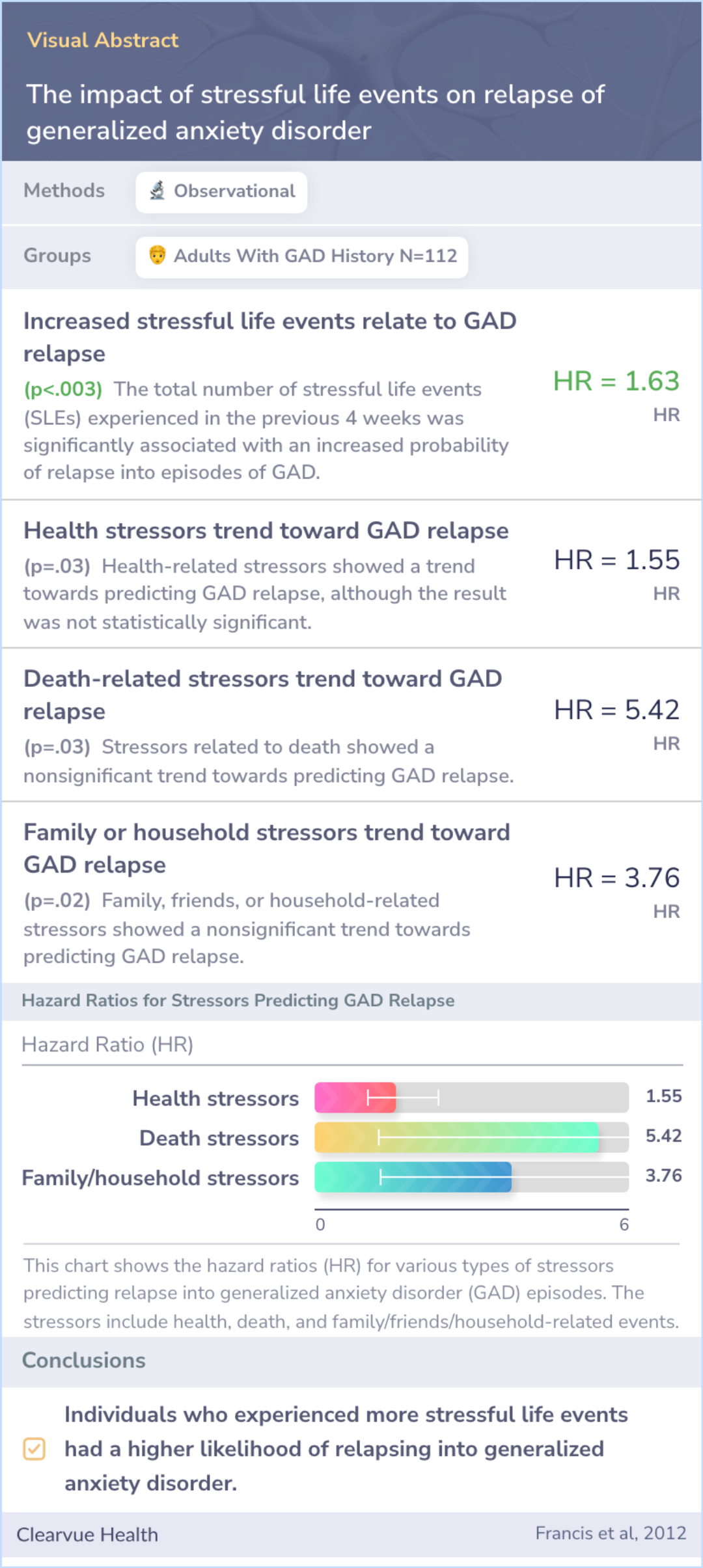
Study Summary
🔬
What They Studied
Researchers investigated how stressful life events impact the relapse of generalized anxiety disorder in adults who had previously recovered from the condition.
💡
What They Found
The study found that a higher number of stressful life events was linked to a greater chance of relapse in individuals who had recovered from generalized anxiety disorder.
📚
What This Means
These findings suggest that certain stressful life events, such as health concerns, death, or family issues, may trigger relapse in individuals recovering from generalized anxiety disorder, aligning with current understanding that environmental stressors can affect GAD.
Study Summary
Study Overview
This study set out to explore how stressful life events (SLEs) influence the relapse of generalized anxiety disorder (GAD). By looking at different types of SLEs, researchers aimed to uncover patterns that could help both clinicians and patients manage symptoms better. The findings highlighted that SLEs, which bring about change and uncertainty, can intensify worry, a key feature of GAD. Thus, understanding these factors is crucial in developing effective coping strategies.
Insights from the study reveal that many individuals with GAD experience more stressful life events than those without anxiety. This connection is important as it might inform future treatments or interventions tailored to minimize the impact of such stressful occurrences.
Insights from the study reveal that many individuals with GAD experience more stressful life events than those without anxiety. This connection is important as it might inform future treatments or interventions tailored to minimize the impact of such stressful occurrences.
Abstract: background
Stressful life events (SLEs) are associated with the onset of psychiatric disorders but little is known about the effects of SLEs on individuals already diagnosed with an anxiety disorder, particularly generalized anxiety disorder (GAD) in which worr...more

Study Objective
"The objective of this study was to examine the effect of SLEs on GAD relapse in a sample of participants enrolled in the Harvard/Brown Anxiety Disorders Research Program (HARP)."
Understanding and Coping
"Improved understanding of factors that affect the course of GAD would be beneficial to assist clinicians in recognizing risks for symptom change and to assist patients in utilizing coping strategies to reduce the potential impact of SLEs."
Exacerbation of Worry
"In the case of GAD, where worry about minor, miscellaneous, and future events is a hallmark symptom, it seems likely that SLEs would exacerbate existing worry tendencies."
Study Summary
Methods
Researchers utilized data from the Harvard/Brown Anxiety Research Project (HARP), which follows adults with anxiety disorders over time. The study looked at 112 adults who had recovered from a GAD episode, of which 27 experienced a relapse.
Through interviews, eight categories of SLEs were identified and analyzed to see if they could predict GAD relapse. This approach provides a real-world look at how everyday stressors influence anxiety recovery.
Through interviews, eight categories of SLEs were identified and analyzed to see if they could predict GAD relapse. This approach provides a real-world look at how everyday stressors influence anxiety recovery.
Abstract: methods
Data are obtained from the Harvard/Brown Anxiety Research Project (HARP), a naturalistic longitudinal study of adults with a current or past history of anxiety disorders. One hundred and twelve adults recovered from an episode of GAD and 27 subsequen...more

Study Summary
Results
Findings show that a higher number of stressful life events is linked to a greater chance of GAD relapse. Although not statistically significant, trends suggest that specific stressors like health issues, loss of a loved one, and family-related events may increase the likelihood of relapse.
These results imply that while not all stress affects GAD equally, certain types of stressors may have a stronger impact on triggering anxiety episodes in those who have previously recovered.
These results imply that while not all stress affects GAD equally, certain types of stressors may have a stronger impact on triggering anxiety episodes in those who have previously recovered.
Abstract: results
An increased total number of SLEs was associated with a higher cumulative probability of relapse into episode of GAD and there was a nonsignificant statistical trend indicating specific categories of SLEs including health, death, and family/friends/h...more
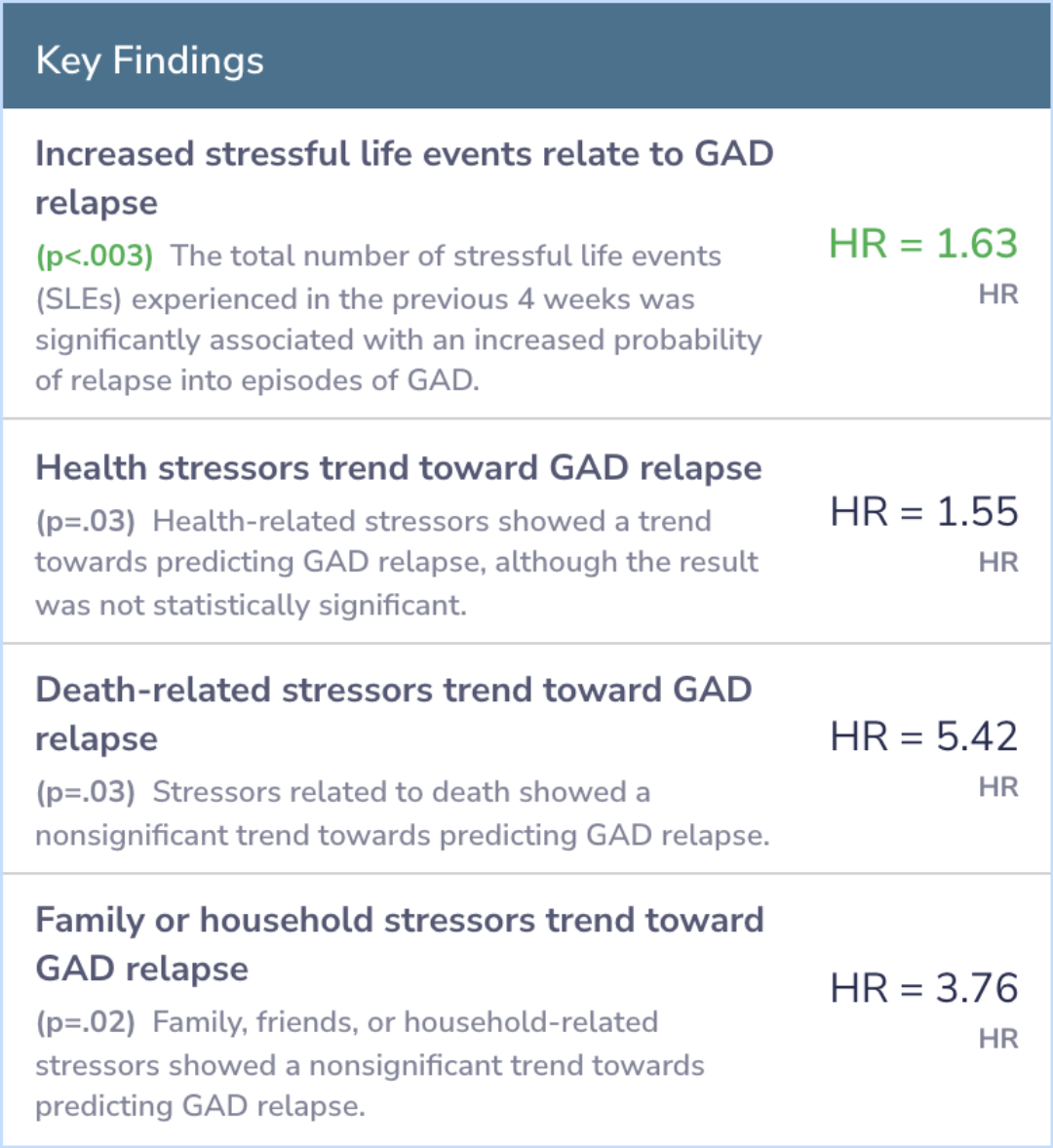
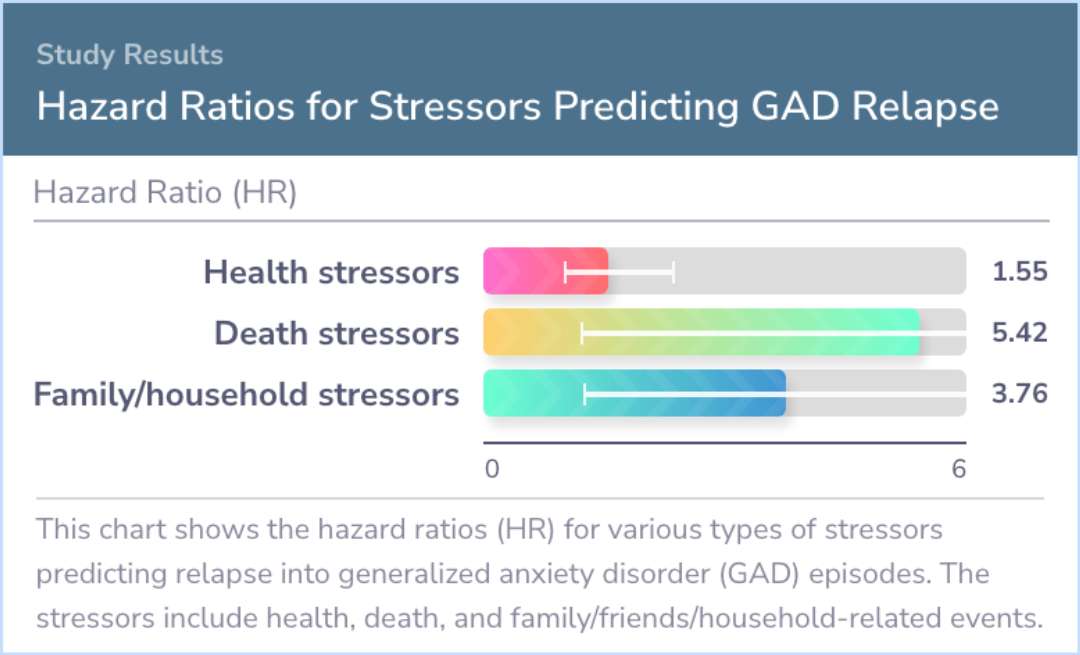
Study Summary
Conclusions
This study concludes that stressful life events significantly influence the course of generalized anxiety disorder (GAD). Certain stressors, particularly related to health, death, and close relationships, may worsen anxiety symptoms and lead to relapse.
The uncertainty and change brought about by these events might intensify existing worry tendencies, even in those who have been in recovery from GAD. Understanding this can help in developing better support systems for individuals with GAD.
The uncertainty and change brought about by these events might intensify existing worry tendencies, even in those who have been in recovery from GAD. Understanding this can help in developing better support systems for individuals with GAD.
Abstract: conclusions
SLEs impact the course of GAD and certain types of stressors may be more relevant to symptomatology than others. The change and uncertainty associated with SLEs may exacerbate existing worry tendencies even among those who have recovered from GAD.
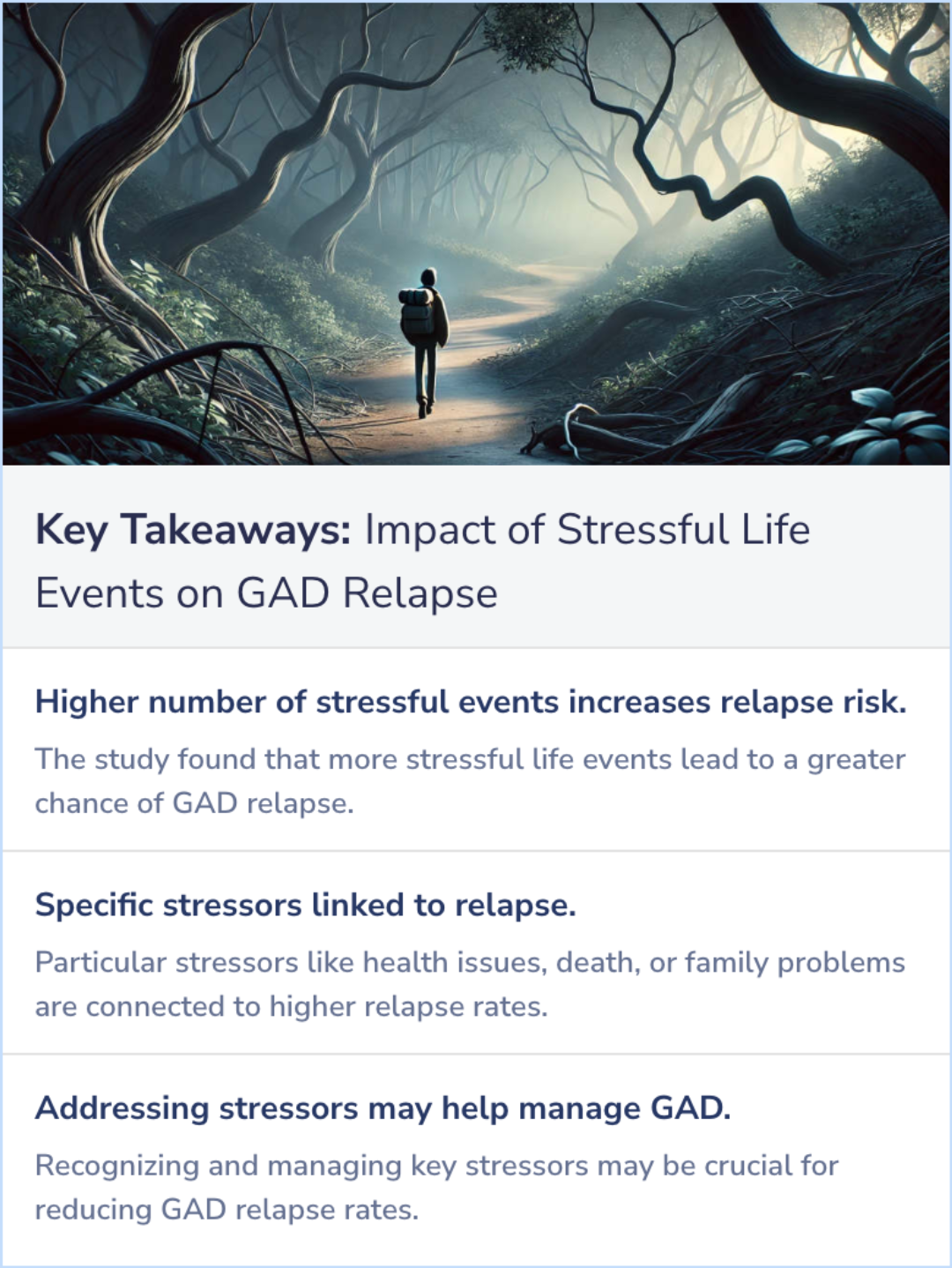
Background Information
Patient Guide
🌍
Stressful Environments and GAD
Stressful environments and trauma notably increase the risk of developing generalized anxiety disorder (GAD).
🔄
Risk of Relapse
GAD's chronic nature often involves a risk of relapse, even with ongoing treatment.
🧘
Stress and Recovery
Environmental stressors can impact recovery for individuals diagnosed with GAD.
😟
Impact of Excessive Worry
Excessive and persistent worry about everyday events defines GAD and affects daily life.
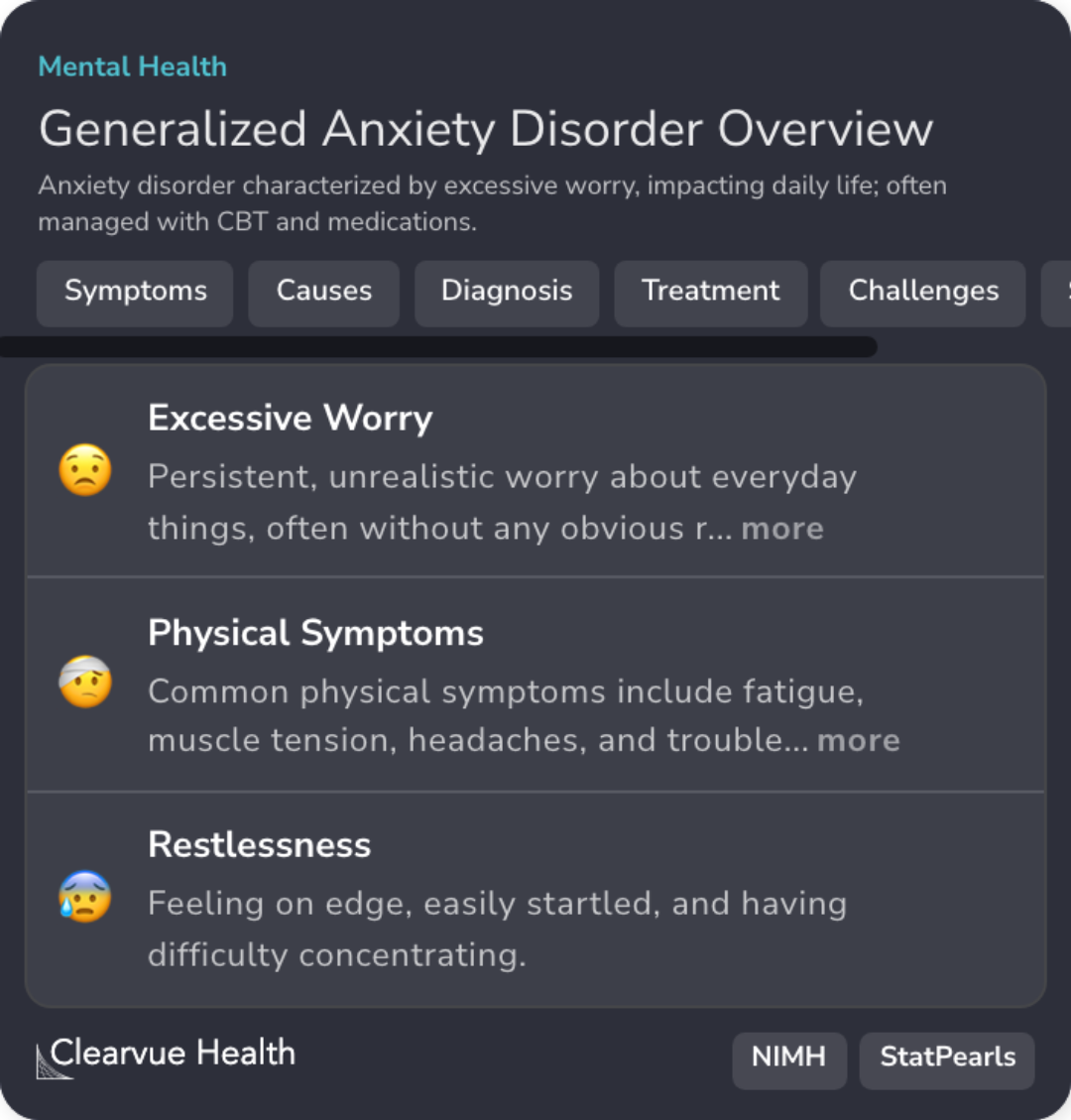
Professional Guide
Expert Opinion: Impact of Stressful Life Events on GAD Relapse
The findings suggest that the impact of SLEs on GAD relapse makes individualized treatment crucial.
CBT is effective across different demographics and uses techniques such as patient education, self-monitoring, and cognitive restructuring to address anxiety triggers.
Recurrences of anxiety are common and manageable with patient coping skills, particularly in the presence of comorbid disorders.
Physical symptoms and cardiovascular health must also be considered in GAD management.
CBT is effective across different demographics and uses techniques such as patient education, self-monitoring, and cognitive restructuring to address anxiety triggers.
Recurrences of anxiety are common and manageable with patient coping skills, particularly in the presence of comorbid disorders.
Physical symptoms and cardiovascular health must also be considered in GAD management.
Evidence Summary
Comparing CBT and Applied Relaxation for GAD Treatment
Cognitive Behavioral Therapy (CBT) and Applied Relaxation offer two distinct approaches for treating Generalized Anxiety Disorder (GAD). CBT works by changing the negative thoughts and behaviors that contribute to anxiety.
Applied Relaxation focuses on teaching muscle relaxation techniques to help reduce anxiety symptoms. Both methods aim to address anxiety but take different paths to achieve their goals.
Applied Relaxation focuses on teaching muscle relaxation techniques to help reduce anxiety symptoms. Both methods aim to address anxiety but take different paths to achieve their goals.
Evidence Summary
Challenges of Late-Life GAD in Older Adults
Older adults with Generalized Anxiety Disorder often face severe symptoms like persistent worry, sleep disturbances, and irritability. These challenges can profoundly affect their daily lives.
Diagnosing GAD accurately and providing effective treatment are vital steps to improve their quality of life, particularly in later life when these symptoms can be most disruptive.
Diagnosing GAD accurately and providing effective treatment are vital steps to improve their quality of life, particularly in later life when these symptoms can be most disruptive.
Evidence Summary
Shifting Focus: Reducing Anxiety with Attention Modification
Attention modification techniques shift focus away from worry and anxiety in Generalized Anxiety Disorder (GAD). By training individuals to redirect their thoughts toward neutral or positive ideas, these methods help reduce the overwhelming effects of anxiety.
This approach improves daily functioning by lessening the grip of anxious thoughts and encouraging a more balanced mental state.
This approach improves daily functioning by lessening the grip of anxious thoughts and encouraging a more balanced mental state.
Evidence Summary
Depression and Anxiety: A Powerful and Complicated Duo
Depression and anxiety often go hand in hand, amplifying each other's effects. Many individuals struggle with both conditions simultaneously, making symptoms more intense and treatment more challenging. The research points to a significant overlap between these two mental health issues.
The coexistence of depression and anxiety can worsen symptoms, complicating treatment strategies. This strong connection highlights the intertwined nature of these conditions.
The coexistence of depression and anxiety can worsen symptoms, complicating treatment strategies. This strong connection highlights the intertwined nature of these conditions.
